

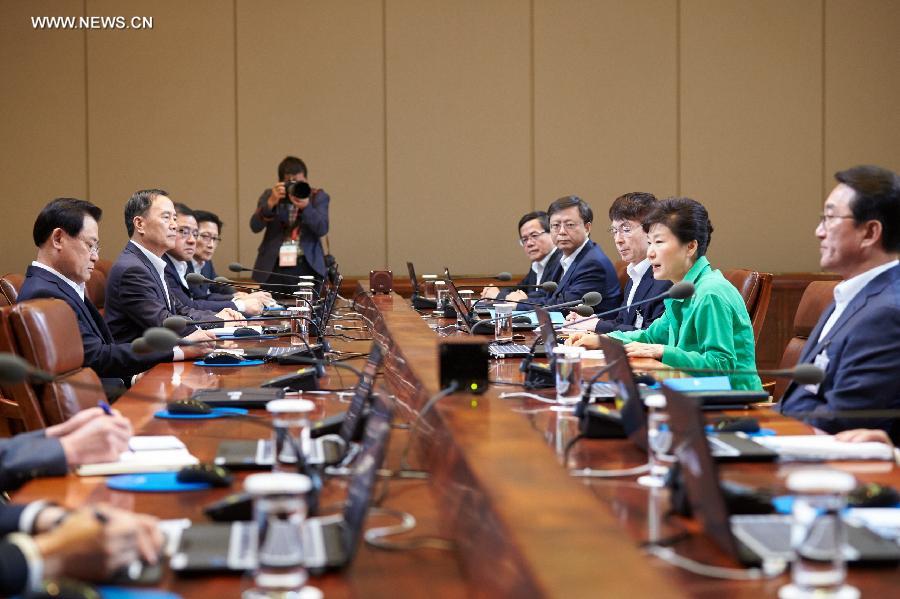
South Korean President Park Geun-hye (2nd R) speaks during a meeting with senior presidential secretaries in Seoul, capital of South Korea, Aug. 24, 2015. South Korean President Park Geun-hye has demanded the Democratic People's Republic of Korea (DPRK) to apologize for alleged provocations as emergency contact between the two sides continues, the presidential office said Monday.(Xinhua Photo)
SEOUL/PYONGYANG, Aug. 24 (Xinhua) -- The two sides on the Korean Peninsula still put their militaries on the highest alert as inter-Korean crisis talks entered the third day Monday.
South Korean President Park Geun-hye demanded the Democratic People's Republic of Korea (DPRK) apologize for alleged provocations amid tense situation, the presidential office said Monday.
Park insisted on continuing propaganda broadcasts in frontline areas unless the DPRK apologizes for the recent landmine explosions that allegedly maimed two South Korean soldiers in the Demilitarized Zone (DMZ).
During a meeting with senior presidential secretaries, Park said that Seoul would never yield to Pyongyang though the latter maximizes provocations and poses threats to security as seen in the past, emphasizing that "a clear apology and recurrence prevention" would be needed to cut off the past repetition of provocations and unstable situations.
Her comments came amid the ongoing crisis contact between her chief security advisor Kim Kwan-jin and top DPRK leader Kim Jong Un's chief military aide Hwang Pyong So, which has lasted for more than 21 hours from 3:30 p.m. (0630 GMT) Sunday at the border village of Panmunjom.
South Korean Unification Minister Hong Yong-pyo and the DPRK's United Front Department director Kim Yang Gon in charge of inter-Korean relations each accompanied them to the second meeting.
The 10-hour first round of talks, the highest-level since President Park took office in February 2013, began at 6:30 p.m. Saturday and adjourned at 4:15 a.m. Sunday in a bid to defuse mounting tensions and prevent a possible military confrontation, yet ended without final agreement.
However, the two sides have discussed a broad range of inter-Korean issues, including the reunion of Korean families separated by the 1950-53 Korean War and the so-called May 24 economic sanctions imposed by South Korea on the DPRK caused by what Seoul claimed was Pyongyang's torpedoing of a South Korean warship.
The standoff escalated as two South Korean soldiers were maimed on Aug. 4 by the blast of landmines inside the demilitarized zone (DMZ), which Seoul claimed had been deliberately planted by DPRK forces. Yet Pyongyang denied any involvement during the ongoing talks.
On Aug. 10, South Korea resumed broadcasting propaganda messages with loudspeakers, silenced for the past 11 years, in retaliation for the landmine blast. The DPRK called for immediate stop of the psychological warfare during the meeting, claiming the blast was a fabrication by Seoul.
South Korea said that it fired back a barrage of artillery into the DPRK in frontlines areas Thursday after the DPRK shelling of the southern part of the DMZ, but Pyongyang also denied the allegation.
The South Korean side called for clear acknowledgment and apology for the mines explosion and shelling attack on the DMZ, while the DPRK demanded the stop of propaganda broadcasts in South Korean army units along the border.
Despite the resumption of the top-level talks and the ongoing marathon dialogue, which indicated a strong willingness from both sides to defuse the tensions, Park said that South Korea will sternly retaliate against any DPRK provocations.
Nearly 70 percent of DPRK submarines left their bases, with the second round being under way, the South Korean military said Sunday. It was 10 times the rate under normal situations, raising anxieties on the South Korean side as the military was unable to track DPRK submarines with its surveillance devices.
In addition, the DPRK has doubled artillery forces in border areas, placing its frontline combined forces to enter a state of war, with more than 1 million young people having volunteered to join or rejoin the military, while South Korean troops also remained on the highest alert.
Day|Week

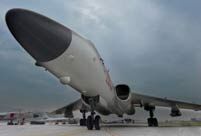 Awesome Chinese H-6k bombers
Awesome Chinese H-6k bombers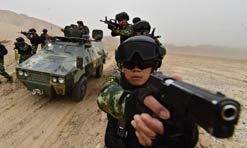 Soldiers of Xinjiang Armed Police Corps conduct training on sandy days
Soldiers of Xinjiang Armed Police Corps conduct training on sandy days What you don't know about cheerleaders
What you don't know about cheerleaders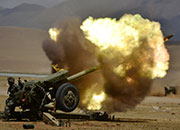 Stunning moments when PLA antiaircraft guns fire
Stunning moments when PLA antiaircraft guns fire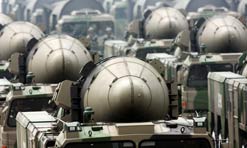 In pics: missiles displayed in previous military parades
In pics: missiles displayed in previous military parades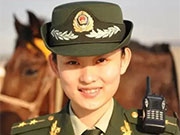 Charming beauties and handsome soldiers in China's border security forces
Charming beauties and handsome soldiers in China's border security forces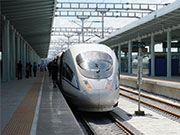 Most beautiful high-speed rail to start operation at the China-Russia-DPRK border
Most beautiful high-speed rail to start operation at the China-Russia-DPRK border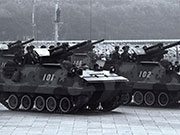 Heroic Chinese Artillery Force
Heroic Chinese Artillery Force